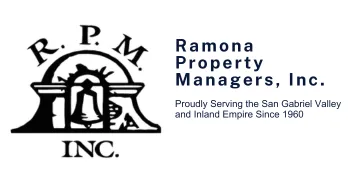Management Matters
Expert tips, tricks, and techniques for effective property management."
Property Management

Understanding Fair Housing Laws: A Guide for Landlords
Understanding Fair Housing Laws: A Guide for Landlords
As a property manager or landlord, staying informed about fair housing laws is crucial to ensure compliance and promote equal housing opportunities. Fair housing regulations protect tenants from discrimination based on race, color, religion, sex, national origin, disability, or familial status. Here’s an overview of key fair housing regulations and practical tips to help landlords stay compliant.
Key Fair Housing Regulations
1. The Fair Housing Act (FHA)
The Fair Housing Act, part of the Civil Rights Act of 1968, prohibits discrimination in housing practices. This includes renting, selling, and financing properties. The FHA covers various forms of discrimination and mandates equal housing opportunities.
For detailed information, visit the U.S. Department of Housing and Urban Development (HUD) Fair Housing Act page (https://www.hud.gov/program_offices/fair_housing_equal_opp/complaint_process).
2. Protected Classes
The FHA protects tenants based on the following categories:
Race
Color
Religion
Sex
National Origin
Disability
Familial Status (e.g., presence of children under 18)
To understand each protected class better, check the HUD’s protected classes page (https://www.hud.gov/program_offices/fair_housing_equal_opp/complaint_process#protected_classes).
3. Advertising and Marketing
Fair housing laws extend to advertising. Advertisements must avoid language that indicates any form of discrimination. For example, phrases like “ideal for single professionals” could be interpreted as discriminatory against families.
For guidelines on fair housing advertising practices, refer to the National Fair Housing Alliance’s (NFHA) advertising guidelines(https://www.nfha.org/resources/advertisingguidelines).
4. Tenant Screening and Selection
When screening tenants, ensure that your criteria are applied uniformly to all applicants. Avoid discriminatory practices in credit checks, background checks, or income requirements.
Learn more about compliant tenant screening practices from the Consumer Financial Protection Bureau’s (CFPB) tenant screening guide(https://www.consumerfinance.gov/askcfpb/whatshouldiknowaboutscreeningtenantsen1994/).
5. Accessibility Requirements
The Fair Housing Act requires that multifamily dwellings built after March 13, 1991, meet certain accessibility standards. This includes features such as ramps, wider doors, and accessible common areas for individuals with disabilities.
For information on accessibility requirements, visit the HUD’s Fair Housing Accessibility First website(https://www.fairhousingfirst.org/).
6. Reasonable Accommodations and Modifications
Tenants with disabilities may request reasonable accommodations (e.g., reserved parking) or modifications (e.g., installing grab bars). Landlords are required to make these changes unless they cause undue hardship.
For more on handling reasonable accommodations, review the HUD’s guidelines on reasonable accommodations(https://www.hud.gov/program_offices/fair_housing_equal_opp/complaint_process#reasonable_accommodation).
7. Handling Complaints
If a tenant believes they’ve been discriminated against, they can file a complaint with HUD. Landlords should be prepared to address these complaints promptly and thoroughly.
For information on how to handle fair housing complaints, visit HUD’s complaint process page(https://www.hud.gov/program_offices/fair_housing_equal_opp/complaint_process).
8. Training and Education
Regularly educate yourself and your staff about fair housing laws and best practices. Training can help prevent unintentional discrimination and promote a fair rental process.
Consider accessing HUD’s training resources(https://www.hud.gov/program_offices/fair_housing_equal_opp/training) for further education on fair housing.
9. Documenting Decisions
Maintain thorough records of tenant interactions, screening decisions, and maintenance requests. This documentation can be crucial if allegations of discrimination arise.
For tips on effective recordkeeping, check the National Apartment Association’s (NAA) resources on documentation(https://www.naahq.org/educationtraining/webinars).
10. Staying Updated
Fair housing laws and regulations may change over time. Keep yourself updated with the latest legal developments and changes in the law.
Stay informed through the HUD website(https://www.hud.gov) and subscribe to updates from relevant fair housing organizations.
Conclusion
Understanding and complying with fair housing laws is essential for creating an inclusive and equitable rental environment. By familiarizing yourself with these key regulations and utilizing available resources, you can ensure that your property management practices uphold the principles of fairness and equality.
Tenant Relations

Understanding Fair Housing Laws: A Guide for Landlords
Understanding Fair Housing Laws: A Guide for Landlords
As a property manager or landlord, staying informed about fair housing laws is crucial to ensure compliance and promote equal housing opportunities. Fair housing regulations protect tenants from discrimination based on race, color, religion, sex, national origin, disability, or familial status. Here’s an overview of key fair housing regulations and practical tips to help landlords stay compliant.
Key Fair Housing Regulations
1. The Fair Housing Act (FHA)
The Fair Housing Act, part of the Civil Rights Act of 1968, prohibits discrimination in housing practices. This includes renting, selling, and financing properties. The FHA covers various forms of discrimination and mandates equal housing opportunities.
For detailed information, visit the U.S. Department of Housing and Urban Development (HUD) Fair Housing Act page (https://www.hud.gov/program_offices/fair_housing_equal_opp/complaint_process).
2. Protected Classes
The FHA protects tenants based on the following categories:
Race
Color
Religion
Sex
National Origin
Disability
Familial Status (e.g., presence of children under 18)
To understand each protected class better, check the HUD’s protected classes page (https://www.hud.gov/program_offices/fair_housing_equal_opp/complaint_process#protected_classes).
3. Advertising and Marketing
Fair housing laws extend to advertising. Advertisements must avoid language that indicates any form of discrimination. For example, phrases like “ideal for single professionals” could be interpreted as discriminatory against families.
For guidelines on fair housing advertising practices, refer to the National Fair Housing Alliance’s (NFHA) advertising guidelines(https://www.nfha.org/resources/advertisingguidelines).
4. Tenant Screening and Selection
When screening tenants, ensure that your criteria are applied uniformly to all applicants. Avoid discriminatory practices in credit checks, background checks, or income requirements.
Learn more about compliant tenant screening practices from the Consumer Financial Protection Bureau’s (CFPB) tenant screening guide(https://www.consumerfinance.gov/askcfpb/whatshouldiknowaboutscreeningtenantsen1994/).
5. Accessibility Requirements
The Fair Housing Act requires that multifamily dwellings built after March 13, 1991, meet certain accessibility standards. This includes features such as ramps, wider doors, and accessible common areas for individuals with disabilities.
For information on accessibility requirements, visit the HUD’s Fair Housing Accessibility First website(https://www.fairhousingfirst.org/).
6. Reasonable Accommodations and Modifications
Tenants with disabilities may request reasonable accommodations (e.g., reserved parking) or modifications (e.g., installing grab bars). Landlords are required to make these changes unless they cause undue hardship.
For more on handling reasonable accommodations, review the HUD’s guidelines on reasonable accommodations(https://www.hud.gov/program_offices/fair_housing_equal_opp/complaint_process#reasonable_accommodation).
7. Handling Complaints
If a tenant believes they’ve been discriminated against, they can file a complaint with HUD. Landlords should be prepared to address these complaints promptly and thoroughly.
For information on how to handle fair housing complaints, visit HUD’s complaint process page(https://www.hud.gov/program_offices/fair_housing_equal_opp/complaint_process).
8. Training and Education
Regularly educate yourself and your staff about fair housing laws and best practices. Training can help prevent unintentional discrimination and promote a fair rental process.
Consider accessing HUD’s training resources(https://www.hud.gov/program_offices/fair_housing_equal_opp/training) for further education on fair housing.
9. Documenting Decisions
Maintain thorough records of tenant interactions, screening decisions, and maintenance requests. This documentation can be crucial if allegations of discrimination arise.
For tips on effective recordkeeping, check the National Apartment Association’s (NAA) resources on documentation(https://www.naahq.org/educationtraining/webinars).
10. Staying Updated
Fair housing laws and regulations may change over time. Keep yourself updated with the latest legal developments and changes in the law.
Stay informed through the HUD website(https://www.hud.gov) and subscribe to updates from relevant fair housing organizations.
Conclusion
Understanding and complying with fair housing laws is essential for creating an inclusive and equitable rental environment. By familiarizing yourself with these key regulations and utilizing available resources, you can ensure that your property management practices uphold the principles of fairness and equality.
Compliance

Understanding Fair Housing Laws: A Guide for Landlords
Understanding Fair Housing Laws: A Guide for Landlords
As a property manager or landlord, staying informed about fair housing laws is crucial to ensure compliance and promote equal housing opportunities. Fair housing regulations protect tenants from discrimination based on race, color, religion, sex, national origin, disability, or familial status. Here’s an overview of key fair housing regulations and practical tips to help landlords stay compliant.
Key Fair Housing Regulations
1. The Fair Housing Act (FHA)
The Fair Housing Act, part of the Civil Rights Act of 1968, prohibits discrimination in housing practices. This includes renting, selling, and financing properties. The FHA covers various forms of discrimination and mandates equal housing opportunities.
For detailed information, visit the U.S. Department of Housing and Urban Development (HUD) Fair Housing Act page (https://www.hud.gov/program_offices/fair_housing_equal_opp/complaint_process).
2. Protected Classes
The FHA protects tenants based on the following categories:
Race
Color
Religion
Sex
National Origin
Disability
Familial Status (e.g., presence of children under 18)
To understand each protected class better, check the HUD’s protected classes page (https://www.hud.gov/program_offices/fair_housing_equal_opp/complaint_process#protected_classes).
3. Advertising and Marketing
Fair housing laws extend to advertising. Advertisements must avoid language that indicates any form of discrimination. For example, phrases like “ideal for single professionals” could be interpreted as discriminatory against families.
For guidelines on fair housing advertising practices, refer to the National Fair Housing Alliance’s (NFHA) advertising guidelines(https://www.nfha.org/resources/advertisingguidelines).
4. Tenant Screening and Selection
When screening tenants, ensure that your criteria are applied uniformly to all applicants. Avoid discriminatory practices in credit checks, background checks, or income requirements.
Learn more about compliant tenant screening practices from the Consumer Financial Protection Bureau’s (CFPB) tenant screening guide(https://www.consumerfinance.gov/askcfpb/whatshouldiknowaboutscreeningtenantsen1994/).
5. Accessibility Requirements
The Fair Housing Act requires that multifamily dwellings built after March 13, 1991, meet certain accessibility standards. This includes features such as ramps, wider doors, and accessible common areas for individuals with disabilities.
For information on accessibility requirements, visit the HUD’s Fair Housing Accessibility First website(https://www.fairhousingfirst.org/).
6. Reasonable Accommodations and Modifications
Tenants with disabilities may request reasonable accommodations (e.g., reserved parking) or modifications (e.g., installing grab bars). Landlords are required to make these changes unless they cause undue hardship.
For more on handling reasonable accommodations, review the HUD’s guidelines on reasonable accommodations(https://www.hud.gov/program_offices/fair_housing_equal_opp/complaint_process#reasonable_accommodation).
7. Handling Complaints
If a tenant believes they’ve been discriminated against, they can file a complaint with HUD. Landlords should be prepared to address these complaints promptly and thoroughly.
For information on how to handle fair housing complaints, visit HUD’s complaint process page(https://www.hud.gov/program_offices/fair_housing_equal_opp/complaint_process).
8. Training and Education
Regularly educate yourself and your staff about fair housing laws and best practices. Training can help prevent unintentional discrimination and promote a fair rental process.
Consider accessing HUD’s training resources(https://www.hud.gov/program_offices/fair_housing_equal_opp/training) for further education on fair housing.
9. Documenting Decisions
Maintain thorough records of tenant interactions, screening decisions, and maintenance requests. This documentation can be crucial if allegations of discrimination arise.
For tips on effective recordkeeping, check the National Apartment Association’s (NAA) resources on documentation(https://www.naahq.org/educationtraining/webinars).
10. Staying Updated
Fair housing laws and regulations may change over time. Keep yourself updated with the latest legal developments and changes in the law.
Stay informed through the HUD website(https://www.hud.gov) and subscribe to updates from relevant fair housing organizations.
Conclusion
Understanding and complying with fair housing laws is essential for creating an inclusive and equitable rental environment. By familiarizing yourself with these key regulations and utilizing available resources, you can ensure that your property management practices uphold the principles of fairness and equality.
Compliance

Understanding Fair Housing Laws: A Guide for Landlords
Understanding Fair Housing Laws: A Guide for Landlords
As a property manager or landlord, staying informed about fair housing laws is crucial to ensure compliance and promote equal housing opportunities. Fair housing regulations protect tenants from discrimination based on race, color, religion, sex, national origin, disability, or familial status. Here’s an overview of key fair housing regulations and practical tips to help landlords stay compliant.
Key Fair Housing Regulations
1. The Fair Housing Act (FHA)
The Fair Housing Act, part of the Civil Rights Act of 1968, prohibits discrimination in housing practices. This includes renting, selling, and financing properties. The FHA covers various forms of discrimination and mandates equal housing opportunities.
For detailed information, visit the U.S. Department of Housing and Urban Development (HUD) Fair Housing Act page (https://www.hud.gov/program_offices/fair_housing_equal_opp/complaint_process).
2. Protected Classes
The FHA protects tenants based on the following categories:
Race
Color
Religion
Sex
National Origin
Disability
Familial Status (e.g., presence of children under 18)
To understand each protected class better, check the HUD’s protected classes page (https://www.hud.gov/program_offices/fair_housing_equal_opp/complaint_process#protected_classes).
3. Advertising and Marketing
Fair housing laws extend to advertising. Advertisements must avoid language that indicates any form of discrimination. For example, phrases like “ideal for single professionals” could be interpreted as discriminatory against families.
For guidelines on fair housing advertising practices, refer to the National Fair Housing Alliance’s (NFHA) advertising guidelines(https://www.nfha.org/resources/advertisingguidelines).
4. Tenant Screening and Selection
When screening tenants, ensure that your criteria are applied uniformly to all applicants. Avoid discriminatory practices in credit checks, background checks, or income requirements.
Learn more about compliant tenant screening practices from the Consumer Financial Protection Bureau’s (CFPB) tenant screening guide(https://www.consumerfinance.gov/askcfpb/whatshouldiknowaboutscreeningtenantsen1994/).
5. Accessibility Requirements
The Fair Housing Act requires that multifamily dwellings built after March 13, 1991, meet certain accessibility standards. This includes features such as ramps, wider doors, and accessible common areas for individuals with disabilities.
For information on accessibility requirements, visit the HUD’s Fair Housing Accessibility First website(https://www.fairhousingfirst.org/).
6. Reasonable Accommodations and Modifications
Tenants with disabilities may request reasonable accommodations (e.g., reserved parking) or modifications (e.g., installing grab bars). Landlords are required to make these changes unless they cause undue hardship.
For more on handling reasonable accommodations, review the HUD’s guidelines on reasonable accommodations(https://www.hud.gov/program_offices/fair_housing_equal_opp/complaint_process#reasonable_accommodation).
7. Handling Complaints
If a tenant believes they’ve been discriminated against, they can file a complaint with HUD. Landlords should be prepared to address these complaints promptly and thoroughly.
For information on how to handle fair housing complaints, visit HUD’s complaint process page(https://www.hud.gov/program_offices/fair_housing_equal_opp/complaint_process).
8. Training and Education
Regularly educate yourself and your staff about fair housing laws and best practices. Training can help prevent unintentional discrimination and promote a fair rental process.
Consider accessing HUD’s training resources(https://www.hud.gov/program_offices/fair_housing_equal_opp/training) for further education on fair housing.
9. Documenting Decisions
Maintain thorough records of tenant interactions, screening decisions, and maintenance requests. This documentation can be crucial if allegations of discrimination arise.
For tips on effective recordkeeping, check the National Apartment Association’s (NAA) resources on documentation(https://www.naahq.org/educationtraining/webinars).
10. Staying Updated
Fair housing laws and regulations may change over time. Keep yourself updated with the latest legal developments and changes in the law.
Stay informed through the HUD website(https://www.hud.gov) and subscribe to updates from relevant fair housing organizations.
Conclusion
Understanding and complying with fair housing laws is essential for creating an inclusive and equitable rental environment. By familiarizing yourself with these key regulations and utilizing available resources, you can ensure that your property management practices uphold the principles of fairness and equality.
Real Estate Services

Understanding Fair Housing Laws: A Guide for Landlords
Understanding Fair Housing Laws: A Guide for Landlords
As a property manager or landlord, staying informed about fair housing laws is crucial to ensure compliance and promote equal housing opportunities. Fair housing regulations protect tenants from discrimination based on race, color, religion, sex, national origin, disability, or familial status. Here’s an overview of key fair housing regulations and practical tips to help landlords stay compliant.
Key Fair Housing Regulations
1. The Fair Housing Act (FHA)
The Fair Housing Act, part of the Civil Rights Act of 1968, prohibits discrimination in housing practices. This includes renting, selling, and financing properties. The FHA covers various forms of discrimination and mandates equal housing opportunities.
For detailed information, visit the U.S. Department of Housing and Urban Development (HUD) Fair Housing Act page (https://www.hud.gov/program_offices/fair_housing_equal_opp/complaint_process).
2. Protected Classes
The FHA protects tenants based on the following categories:
Race
Color
Religion
Sex
National Origin
Disability
Familial Status (e.g., presence of children under 18)
To understand each protected class better, check the HUD’s protected classes page (https://www.hud.gov/program_offices/fair_housing_equal_opp/complaint_process#protected_classes).
3. Advertising and Marketing
Fair housing laws extend to advertising. Advertisements must avoid language that indicates any form of discrimination. For example, phrases like “ideal for single professionals” could be interpreted as discriminatory against families.
For guidelines on fair housing advertising practices, refer to the National Fair Housing Alliance’s (NFHA) advertising guidelines(https://www.nfha.org/resources/advertisingguidelines).
4. Tenant Screening and Selection
When screening tenants, ensure that your criteria are applied uniformly to all applicants. Avoid discriminatory practices in credit checks, background checks, or income requirements.
Learn more about compliant tenant screening practices from the Consumer Financial Protection Bureau’s (CFPB) tenant screening guide(https://www.consumerfinance.gov/askcfpb/whatshouldiknowaboutscreeningtenantsen1994/).
5. Accessibility Requirements
The Fair Housing Act requires that multifamily dwellings built after March 13, 1991, meet certain accessibility standards. This includes features such as ramps, wider doors, and accessible common areas for individuals with disabilities.
For information on accessibility requirements, visit the HUD’s Fair Housing Accessibility First website(https://www.fairhousingfirst.org/).
6. Reasonable Accommodations and Modifications
Tenants with disabilities may request reasonable accommodations (e.g., reserved parking) or modifications (e.g., installing grab bars). Landlords are required to make these changes unless they cause undue hardship.
For more on handling reasonable accommodations, review the HUD’s guidelines on reasonable accommodations(https://www.hud.gov/program_offices/fair_housing_equal_opp/complaint_process#reasonable_accommodation).
7. Handling Complaints
If a tenant believes they’ve been discriminated against, they can file a complaint with HUD. Landlords should be prepared to address these complaints promptly and thoroughly.
For information on how to handle fair housing complaints, visit HUD’s complaint process page(https://www.hud.gov/program_offices/fair_housing_equal_opp/complaint_process).
8. Training and Education
Regularly educate yourself and your staff about fair housing laws and best practices. Training can help prevent unintentional discrimination and promote a fair rental process.
Consider accessing HUD’s training resources(https://www.hud.gov/program_offices/fair_housing_equal_opp/training) for further education on fair housing.
9. Documenting Decisions
Maintain thorough records of tenant interactions, screening decisions, and maintenance requests. This documentation can be crucial if allegations of discrimination arise.
For tips on effective recordkeeping, check the National Apartment Association’s (NAA) resources on documentation(https://www.naahq.org/educationtraining/webinars).
10. Staying Updated
Fair housing laws and regulations may change over time. Keep yourself updated with the latest legal developments and changes in the law.
Stay informed through the HUD website(https://www.hud.gov) and subscribe to updates from relevant fair housing organizations.
Conclusion
Understanding and complying with fair housing laws is essential for creating an inclusive and equitable rental environment. By familiarizing yourself with these key regulations and utilizing available resources, you can ensure that your property management practices uphold the principles of fairness and equality.


